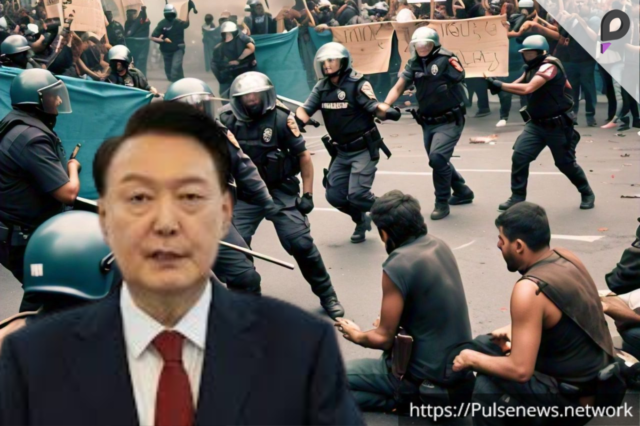Seoul: South Korea entered uncharted territory when an unprecedented attempt to arrest suspended President Yoon Suk Yeol ended in a dramatic six-hour standoff. The operation, intended to enforce a legal arrest warrant, was thwarted by pro-Yoon supporters and a human wall of armed security personnel, raising profound questions about governance and accountability.
A Pre-Dawn Showdown
The standoff began early in the morning, with police arriving at Yoon’s residence to find hundreds of his supporters camping outside. Many were emotional, expressing despair and determination to prevent the arrest. As dawn broke, police forces, armed with a warrant, faced an impenetrable barrier—a wall of soldiers and security officials who blocked their entry.
Despite reinforcements swelling the police team to 150 officers, Yoon’s security team stood firm, preventing access to the residence. After hours of tense negotiations and minor scuffles, law enforcement called off the mission, citing safety concerns.
A Nation Without Precedent
This is the first instance in South Korea’s history where a sitting president has been targeted for arrest. Although Yoon was impeached three weeks earlier and stripped of his official powers, the standoff underscored a stark reality: control over security forces remains ambiguous. The inability to execute a lawful warrant highlights significant gaps in the nation’s governance framework.
Investigators revealed that approximately 200 security officers, some armed, formed a human barricade to shield Yoon. This resistance, combined with Yoon’s strategic placement of loyalists in key positions, has left authorities scrambling for solutions.
Charges and Resistance
Yoon faces serious allegations, including inciting insurrection—a charge that carries life imprisonment or even the death penalty. Despite the gravity of these accusations, he has repeatedly ignored summonses, forcing investigators to seek his arrest.
Adding to the chaos is Yoon’s vocal encouragement of his supporters. In a New Year’s letter, he thanked them for defending him and the country. His base has since grown more emboldened, chanting slogans like “Stop the Steal” and echoing unfounded claims about election fraud and infiltration by pro-North Korea elements.
The Acting President’s Dilemma
Attention now shifts to Acting President Choi Sang-mok, who holds the authority to intervene. Critics argue he should dismiss Yoon’s security chief to facilitate the arrest. However, political sensitivities and the volatile situation on the ground complicate this decision.
What Comes Next?
Investigators face a January 6 deadline to execute the arrest under the current warrant. While they may request a new warrant or revise their approach, today’s events have significantly empowered Yoon’s supporters. With growing confidence and the weekend approaching, larger crowds are expected to rally around Yoon’s residence.
The situation underscores deep divisions within South Korea, as law enforcement, political institutions, and public sentiment collide in an unprecedented crisis. Whether investigators can overcome these challenges remains to be seen, but the outcome will undoubtedly shape the nation’s political and legal landscape for years to come.











